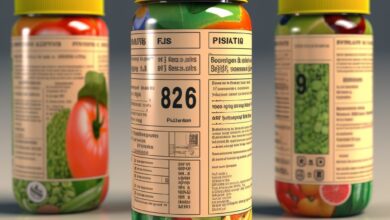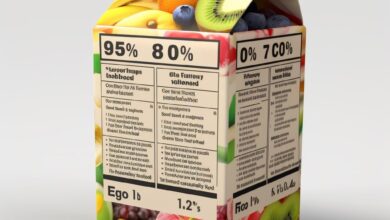Banana Nutrition Facts
Banana Nutrition Facts reveal a world of health benefits hidden in this popular fruit. Discover how this sweet, potassium-rich snack can impact your heart health, digestion, weight management, and more in our comprehensive guide.
Bananas, a well-loved fruit globally, are delicious and packed with important nutrients. This article will provide a comprehensive overview of bananas’ nutritional content and health benefits, integrating research from multiple credible sources.

Nutritional Profile of Bananas
- Calories and Macronutrients: A medium-sized banana contains approximately 110 calories. It is virtually fat-free, with 0 grams of fat, and provides 1 gram of protein. Carbohydrates are the main macronutrient present, with about 28 grams, which includes 15 grams of naturally occurring sugar and 3 grams of dietary fiber.
- Vitamins and Minerals: Bananas are an excellent source of several vitamins and minerals. They are particularly high in Vitamin B6, Vitamin C, and minerals like potassium, magnesium, and manganese.
Health Benefits of Bananas
- Cardiovascular Health: Bananas are rich in potassium, a vital mineral and electrolyte. Potassium plays a critical role in maintaining regular heartbeats and muscle contractions. It also helps balance water in cells and can counteract the adverse effects of excessive sodium in the diet, potentially reducing the risk of high blood pressure.
- Digestive Health: Resistant starch in unripe bananas can aid digestive health. This starch resists digestion in the small intestine and acts as food for beneficial gut bacteria. The fermentation process of resistant starch in the large intestine can produce short-chain fatty acids, beneficial for treating digestive disorders like ulcerative colitis and Crohn’s disease.
- Weight Control: Contrary to popular belief, bananas do not contribute to weight gain. Research has shown that banana consumption may be associated with less weight gain over time, dispelling the myth that bananas are fattening.
- Glycemic Index: Bananas have a low glycemic index (GI), particularly when slightly under-ripe. The resistant starch in bananas functions similarly to dietary fiber, slowing digestion and reducing blood sugar spikes. This makes bananas suitable, even for those with diabetes or prediabetes.
Storage and Ripening Tips
- Bananas should be stored at room temperature and away from direct sunlight. Refrigeration can disrupt the ripening of green bananas.
- Store bananas in a brown paper bag or near-ripe fruit to accelerate ripening. Conversely, keep them away from other ripe fruits to slow down ripening.
- Ripe bananas can be refrigerated to extend their shelf life, though the peel may darken. Overripe bananas are perfect for baking or smoothies.
Conclusion
In conclusion, bananas offer a range of health benefits and are a versatile, nutritious addition to the diet. Their rich nutritional profile supports cardiovascular health, digestive health, weight management, and blood sugar control, making them an excellent choice for a healthy diet.
Related to Business or Institution: Bananas are a key agricultural product with significant economic and nutritional importance globally. They are grown in over 120 countries and are among the world’s most consumed fruits. The banana industry is vital for the economies of many tropical countries, providing employment and income for millions of people. However, it faces disease, climate change, and labor issues. Efforts are continually made to improve sustainable production practices, ensuring that this nutritious fruit remains a staple in diets worldwide.





